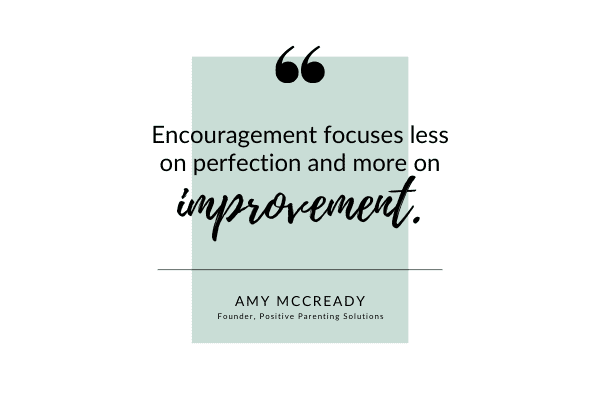Does Paying Kids for Good Grades Pay Off?

Education is a gateway to success. It’s why parents in New York hire consultants for preschool. It’s why young kids in China are writing resumes. And it’s why American high school students fret over competitive college admissions.
Parents know that the better the education, the greater their child’s success may be. They also know that numerous achievements, like a high GPA, can help secure that success. Some colleges even value a high GPA above all other application components.
The importance of good grades can put a lot of pressure on students and their parents. Many families turn to monetary incentives like paying their kids to make those grades. (Or, like in recent news, there are the notorious and wealthy few willing to bribe administrators for admissions.)
Offering a child fifty dollars in exchange for an excellent report card seems like a small price to pay for a child’s entire future.
But it’s not that simple. Paying for grades isn’t just a harmless means to an end that puts a little fun money in our kids’ pockets.
Paying for grades actually robs kids of much greater wealth. It doesn’t matter whether your child is headed for preschool, community college, or the Ivy League: True, long-lasting success requires skills that money can’t buy.
Our Ultimate Guide to Motivating Your Kids takes money out of motivation with effective, long-term strategies. Start using them today!
Here are 6 reasons why paying for grades isn’t the best way to set our kids up for life-long success:
1. Payment Breeds Entitlement
You may be thinking that paying for grades, overall, can’t be that bad. If it gets your kids into college, where is the real harm? Maybe YOU were paid for grades and it worked well for you. Now, you want to pay it forward and invest in your children’s careers with a small down payment. Plus, young adults get paid for their work when they finally land jobs–so what’s the difference?
Before we continue, let me ask…Do you pay your kids to clean their rooms? To take out the trash? To take time out of playing to sit on the potty?
Paying our kids for something that is a necessary part of life–including studying–is a dangerous game.

Are you paid for tidying up the house? Making dinner for the family? Keeping the maintenance up on your car? Organizing the chauffeur schedule to get all the kids to their practices on time?
The truth is, certain things need to be done without compensation. Anything else is a path towards entitlement.
The newest generations of young adults–Millennials and Gen Z-ers–are getting a bad rap. They have great skills, but some expect a lot in return. In many ways, this is good–like the fact that they’re forcing companies to create more balanced work-life environments. But in other ways, expectations can lean too much towards entitlement.
Studying may seem a lot like holding an actual job, complete with time-management and hard work. But the more our kids can do necessary work without applause–or a small paycheck–the more conditioned they’ll be for future jobs. They’ll exemplify a solid work ethic by caring about their efforts and self-improvement–and this will make them all the more successful.
Their transition to the rest of the “real world” will also be less of a wake-up call. Just like us, our kids will never get paid for doing their taxes, cleaning the bathrooms, and raising their children (to name a few minor things).
2. Rewards Decrease Motivation
Some parents might argue that the last time their 6-year-old ate her asparagus, it was only because of the dessert she was promised. Or that their preteen–who hates his new braces–only smiled for the expensive family photoshoot because he was bribed with a new video game.
Yes, rewards DO motivate to some degree in the short-term–but this motivation isn’t sustainable. Kids will eventually want us to up the ante, which leads to increased bargaining and appeasement. One M&M will turn into 5. Ten dollars per ‘A’ will turn into twenty.
Their motivation for a quick-fix is short-term and external rather than long-term and internal.
Also, when we offer rewards, it sends our kids the message that we don’t have confidence they can achieve good grades without added incentive.
This is our cue for providing Encouragement.
Encouragement is helping our kids feel empowered by their choices, like focusing on the effort they put into a grade. It can start small at first, like the extra fifteen minutes they spent studying the night before that helped bring their ‘D’ test score up to a ‘B’.
“Your work earned you that ‘B’! You should feel really proud of the extra effort you put in!“
This encouragement helps connect effort to results and gives kids a hit of confidence and power.
Doling out encouragement isn’t the same as sugary compliments and unhelpful praise, like “you’re just so smart!” or “you’re so good at everything!” It may seem beneficial, but praise like this is just another reward in disguise.
Shallow praise makes kids feel good in the moment, but it also tells them they don’t need to try any harder because they’re already “on top.” Encouragement, on the other hand, focuses less on perfection and more on improvement. It also gives kids the confidence to move forward towards their next goals.

Pro Tip: For our Parenting Success System Members, please check out (or review) our Battle-Tested Blueprint, Say NO to Rewards and Praise and learn how to shift your language to empower your children.
3. Paying For Grades Deflects From Good Habits
Just like connecting good grades to effort, helping kids establish good study habits is a major advantage to their futures.
Instead of promising your teen extra allowance for a successful semester, you can help him focus on developing a homework plan. This might include proper time management, the removal of distractions, and the use of a When-Then Routine.
When-Then Routines helps kids complete the less fun things before the more enjoyable parts of their day.
You can say, “Emily, when you’ve finished studying for your test, then you can watch TV.” Or, “When you’ve finished your project, then you can hang out with your friends.” The then isn’t a special privilege but rather a regularly enjoyed activity. Plus, if the When-Then becomes a routine standard, kids are even more likely to cooperate.
Effective studying is invaluable because it speeds up and simplifies the learning process. It shifts the focus from the grades themselves to the practice of studying. In this way, the letters on the report card aren’t the motivator. The routine and hard work put in each day (with a little dose of encouragement from you) are all your child needs to feel successful.
On the other hand, the promise of money isn’t guaranteed to teach these habits–nor does earning an ‘A’ without a good amount of self-discipline. In fact, paying for grades can encourage kids to cut corners and cheat the system.
Pro Tip: For Parenting Success System Members, review our Battle-Tested Blueprint, The 3 R’s of School Success.
4. Rewards Foster Laziness, Lying, and Cheating
Often, our dear kids seem nothing but lazy. But there’s often a lot more to this than meets the eye.
Most kids are bogged down with extracurricular activities and are in major need of extra sleep these days.
Many also fail to see the value of studying.
“Laziness may often be the result of there being too much of a disconnect between what a person is asked to do and why that task is important.” – Daniel Marsten, Ph.D., Psychology Today
Unless we help kids understand that studying is beneficial for more than just good grades, (like the development of life-long skills and the absorption of valuable and interesting information) they may be inclined to take short cuts. And promising fifty dollars for every ‘A’ (or whatever the current going rate is) further increases this short line approach.
Because kids still want that money to fund their Spotify premium account and to purchase the latest and greatest ripped jeans.
Short cuts might include lying about a report card or exaggerating a ‘C’ on a history exam. Kids may even go so far as to cheat. This could be asking a friend to write an English paper for them or getting the answers to the chemistry test from a student who took it last year.
Dangling rewards for good grades can lead kids towards unwise decisions. While all children need to make mistakes–like learning that lying or cheating never ends well–they can learn in less harmful ways.
5. We Should Avoid the Avoidance of Failure
I get it–good grades are important. We don’t want to see our kids fail and we certainly don’t want to see that failure–in the form of ‘F’s, ‘D’s, and ‘C’s–threaten their future.
Paying our kids for good grades may help them secure these grades, but allowing them to fail without added incentive is an even greater benefit.
In a competitive world, kids aren’t always comfortable making mistakes. Or losing. Or even getting second place. But learning to embrace failure, learn from it, and pick back up again is an imperative skill. It’s a situation kids will find themselves in again and again in life, and letting them practice their resilience before they’re off on their own gives them an advantage.
Childhood is the perfect time to let kids fail, because the older they get, the more will be at stake. A child with a safety net throughout childhood will fall much farther and harder as an adult than a child that’s allowed to fail.
Kids need to know that if they don’t do their work, they’ll fail. They also need to know failure isn’t the end of the world. Finally, they need to realize that the real way to combat failure is to adapt and try again.
Learning to recover from failure can shift a child’s mindset from “Working hard for a good grade isn’t worth the risk of getting a bad one” to “If I don’t do well, it’s okay. I’ll work even harder next time.”
6. We Want to Focus on the Journey–Not the Destination
We all know the saying. You know, the one that reminds us to enjoy the process? To seize the day? It’s the advice that if we focus only on our end-goals, we overlook all the other special moments along the way.
It’s just that it can be hard to hear “enjoy the journey” when the process is studying.
The thing is, though–it’s actually true.
If kids respect, or dare I say, enjoy studying, they’ll be more willing to do it without a payoff.
We can help by trying to make learning interesting. Maybe it’s talking about the mind-bending theories of quantum physics (like the idea that one particle can be in two places at a time?! Hello, multiverse!) with otherwise boring physics homework. It could be going to see a funny, modern take on a Shakespearean play. Or, it could be teaching fractions while measuring the ingredients for homemade cookies.
Kids can still celebrate getting a good final grade, but we want them to feel inspired by the smaller, daily things they learn and experience along the way.
Final Thoughts
It’s true that money can buy a lot. Having money equates to many advantages, and to a certain extent, we can’t live without it. We also need our kids to be financially independent one day. Good education and good jobs help make that happen.
But let me ask you this: is focusing on a financial profit the message we want to send our kids?
Instead, let’s teach our children that good grades are more than a means to an end and that studying can be both interesting and empowering. Let’s instill the fact that effective studying produces skills like hard work, determination, confidence, and a great set of habits–all of which enable and increase long-term success.
As long as we provide an atmosphere of encouragement, and never bribery, our kids will be fortified by skills and motivations that are truly sustainable.
And until we receive that first, jaw-dropping college tuition bill–it won’t cost us a single penny.
Want more detailed tips and tricks? Check out Amy’s Ultimate Guide to Motivating Your Kids. You’ll learn how your language affects your child’s motivation and what steps YOU can take to increase their cooperation.
What You Should Do Next:
1. Get Quick Actionable TIPS delivered to your inbox
Sign up for my newsletter for parenting tips to help you create a happier home and become the parent you always wanted to be. Plus, when you subscribe, I'll also send you a copy of our strategy-packed guide 10 Tips for Better Behavior – Starting NOW!
2. Unlock the secrets to easier parenting in my FREE CLASS
Register for my free class called How to Get Kids to Listen, Without Nagging, Yelling or Losing Control. Classes run several times per week to accommodate your busy schedule.
3. Transform your family with the 7-Step Parenting Success System® Course
Join the hundreds of thousands of parents who have transformed their families with the 7-Step Parenting Success System® Course. Learn the tools you need to raise happy, respectful, responsible kids and create the family life you always dreamed of having.
About the Author






